Learning From Failure With The CEO Of Celebrity Cruises, Lisa Lutoff-Perlo
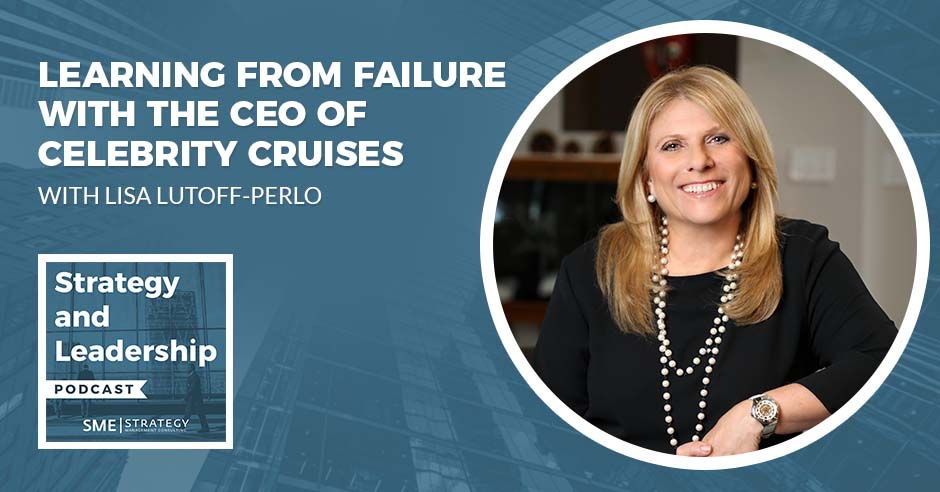
Nobody wants to fail, but failing can just be the thing you need to really grow in your career and in your life. As the cliché goes, experience is the best teacher, and failure is arguably the best experience you can have. Lisa Lutoff-Perlo learned this powerful lesson in her trailblazing journey as a female leader in a male-dominated industry. In this episode, she shares how she went from sales professional to becoming a CEO of celebrity cruises, (wo)manning the men plying the high seas. She shares the things she has learned from her experience, both from her successes and, more importantly, her failures. Tune in for a powerful learning experience!
Want to continue the conversation with other leaders around the world? Join our Strategy and Leadership community.
https://strategy-and-leadership.mn.co/
► Subscribe to our channel for weekly videos on strategy & leadership: https://www.youtube.com/channel/UCOHLNRrpk3rGUdg7qUQjiog/?sub_confirmation=1
➡️ Looking for a sample agenda for your strategic planning offsite? https://www.smestrategy.net/blog/sample-strategic-planning-agenda
// Connect with us:
► Contact us: https://www.smestrategy.net/contact
► Connect with Anthony on LinkedIn: https://www.linkedin.com/in/anthonyctaylor604/
// About SME STRATEGY CONSULTING:
SME Strategy is a management consulting firm that specializes in helping organizations develop and implement their strategic plans. We work with teams to facilitate conversations about strategic direction and business strategy so that our clients can focus their energy on what will move them forward faster.
► Work with us: Are you looking for someone to facilitate your strategic planning process? https://www.smestrategy.net/strategic-planning-facilitator
► Check out our Strategy & Leadership Podcast: https://open.spotify.com/show/4yND4JKofh64gcvyvcLMqW
► Check out our online course on how to successfully lead your next strategic planning process: https://courses.smestrategy.net/
Listen on Spotify: https://open.spotify.com/episode/1wiuVPev6lX4yO7U8zQFh1?si=0869ddad5f81448b
Listen on Apple Podcasts: https://podcasts.apple.com/ca/podcast/learning-from-failure-with-the-ceo-of-celebrity/id1202449526?i=1000647215640
---
Watch the episode here
Listen to the podcast here
Learning From Failure With The CEO Of Celebrity Cruises, Lisa Lutoff-Perlo
My guest is Lisa Lutoff-Perlo who is the former CEO at Celebrity Cruises and she’s used wrote a new book, Making Waves: A Woman's Rise to the Top Using Smarts, Heart, and Courage, which I love. Lisa, thanks so much for joining me.
It's a pleasure. It’s great to be with you.
Tell me, you've been in the cruising industry for a long time. You've had a lot of different roles in there, in and out. Why don't you give our audience a little bit about your background? What led you to write the book and it'll get into some questions?
I've been in the industry for many years. I started out at the very bottom in the company as a district sales manager. A salesperson calling on travel companies door-to-door in New England where I'm from. For many years, I have had different positions within the company and I was appointed President and CEO of Celebrity in December of 2014.
I had a wonderful career in this industry that has grown tremendously. I've got to do a lot of different things in the company, which prepared me very well for the President and CEO role. As you can imagine, I was the first woman President and CEO in our company of one of our brands, the first woman in the C-Suite.
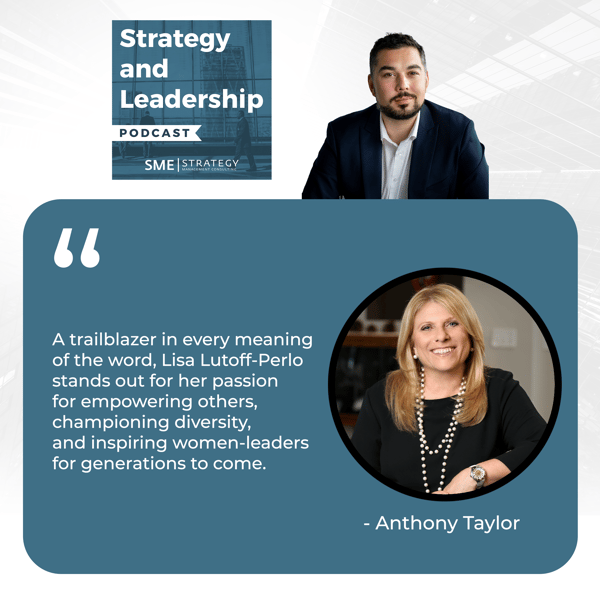
Our industry is about 100 years old. It's very male-dominated. Many people along the way told me I needed to write a book and all the lessons I've learned and things that I've done which was the catalyst to Making Waves. I wrote it and included a lot of the lessons told through stories in the hope that I can help other people as they're thinking through their own careers and their own aspirations.
I love that. It's about sending the elevator back down, so to speak, but also in a new industry like women leaders or we should just say leaders. All of that is so great and there's always a lot to learn. I don't want to give away too much of the books because I encourage everybody to buy it if you like what Lisa’s talking about. Let's take it back, what was it like just before you moved into the C-Suite? What was your experience as a leader? Was it hard or was it easy? Was it fun? What were some of the things that contributed to your success as you made waves, so to speak within the organization?
It was certainly fun but it also wasn't easy. Any of us that are navigating our way in our careers and thinking about where we want to go, versus what we're doing now and all of the different ways to get there. You have to try different things and do different things. You don't always know everything about what you're doing and my career was very much moving around the company and learning new things.
The reason that I was chosen for a lot of the different positions that I've held throughout my long career were based on the fact that I'm a driver, get results, create good cultures, I think differently and transformatively. Oftentimes, it wasn't because I was a subject matter expert in the areas that I was taking over. I learned as well along my way, which is wonderful if you can be in an environment and in a company that believes in you and also helps you learn, grow, and reach whatever your goals are.
>> Doing strategic planning? Learn how a strategic planning facilitator can align your team and help you reach your goals faster.
Was it intentional that you wanted to go throughout the organization? Were you looking for opportunities? What drove you personally to create that explorative mindset?
I didn't have a plan. I started in sales. My first promotion within the sales organization came four years after I started. It was a regional sales manager role, so I was responsible for other salespeople versus being the salesperson. I had to move to Miami. The first thing I did was I had to be okay with leaving the place that I was born and raised, all my friends and family and embark on this new adventure.
For the entire seventeen years, I was in sales. I only wanted to be the head of sales. I never thought about being a President or CEO of one of our brands. Interestingly enough, one of the people that led the sales and marketing organization back in 2001 decided that I should go to marketing because he recognized some talent in me that perhaps I didn't recognize in myself.
He thought I should go try other things in the company and expand my experience so that I would be a more valuable leader and I would be able to do more in different things. I didn't think about being president and CEO of one of the brands probably until 2012, I believe, which was far into my career. It was after numerous moves into different departments on to different brands. Always at someone's urging that I try different things.
My career was unplanned which in many ways isn't bad. Sometimes, if you plan everything you miss out on a lot because you're only focused on one direction, one thing, and one aspiration. You never know where your career or life is going to take you if you're willing to try something new. That's a big lesson that I learned because the first time I was moved from sales and marketing I wasn't happy. I felt like it was a terrible thing when my career was over. When in fact, it was the best thing that could have ever happened to me and my career.
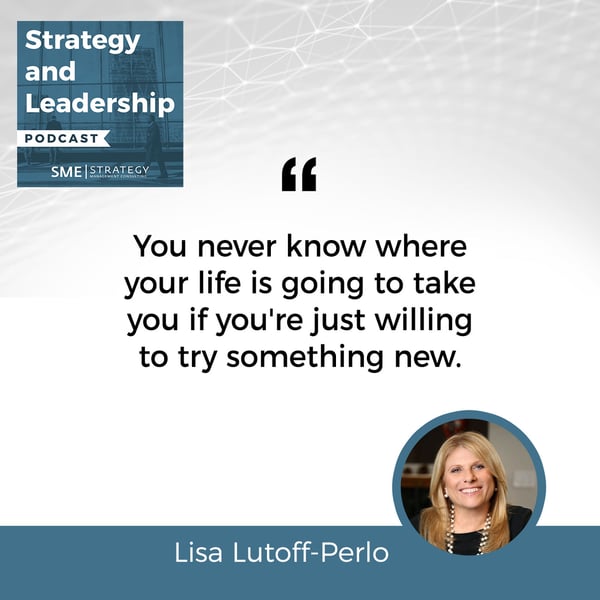
That's awesome. It’s like unexpected benefits and unexpected success. There's a line from a Little Wayne song, he says, “The strength that comes without strategy. When you don't have a plan, it leaves you with fundamentally endless possibilities.” Let me ask, with one organization for many years, now and 2024, the general consensus is you could change jobs every 2 to 3 years so because you'll make more money, statistically.
When you don't have a plan, it leaves you fundamentally endless possibilities.
That wasn't the case back when you started your career. Did you know you always wanted to be in the cruising industry? What these opportunities presenting itself? Did you had no reason to leave? Why I'm asking the question is maybe some people have a track where they want to be the CEO of some company and they might say, “Do I stay in one organization, try to move around or do I hop around to get that experience?” I don't think there is a right answer but just curious about what motivated you and drove you as you made your decisions.
You're right, I don't think there's a right or wrong answer. It's different for every person. The interesting thing for me was being in this company. It was growing significantly. The industry was growing significantly, so then the opportunity was growing significantly with multiple brands, multiple functions, huge operations, and global operations.
There were so many different things you could do and stay in a company for 39 years and not feel like it was 39 years. I still can't believe it when I say it up until the time I came into this company. I had jobs for about a year each. I got tired. I got sick of it. I moved around. I wanted to go to something else. I thought that moving around I would be able to advance my career in a different way.
Again, I ended up by accident in this amazing industry that I've now been a part of in one company for many years. I will tell you, there are a lot of people in our industry like other industries that move around. They move to different Cruise Lines or into progressive positions around the industry. They've never navigated their career in that way. I was fortunate in that. I love the company. We’re the best in class and every one of our brands were the leader in the industry.
It was a great place for me to find a home but I also know, especially now in 2024, I'm like a unicorn. There's not many of us out there that believe that you should be in a company for many years. People just need to make sure they're continuing to grow. It could be progressive positions or learning more. At the end of the day, when you do that, you become more valuable to yourself. You become more valuable to any organization then you can participate in or take advantage of certain positions that come your way. Whether they're in your company or not in your company.
When you make sure that you continue to grow, you become more valuable to yourself and you become more valuable to any organization.
It also sounded like along the journey that you are fortunate to have people around you that encouraged you to stretch yourself due to growing beyond potentially what you knew and the timing of an organization that had upside. Is it fair to say that you had good managers that help you along the way?
I always call advocates. People that saw talent you and used whatever position they were in to help advance you and give you different opportunities because they saw the talent. They also saw that you could do good things for certain roles and positions that they were looking to fill. I've always tried to do the same thing. A big part of my leadership style and a lesson I learned was to pay it forward, bring other people along with you. Help people take the elevator up with you because you achieve something and you don't help others do the same thing then what you've achieved is meaningless and useless.
I've always taken the most joy in helping others accomplish their dreams as well because I was fortunate that other people did that for me. It was all men because they were all men in these positions and running the company at the time. I owe them a tremendous amount of gratitude for helping me accomplish what I never even thought of in my wildest dreams earlier in my career.
That's the power of a good leader who sees you for what your capable of. I was curious about if intentionally look for advocates like people go out and they say, “I need mentors. I need support or I need to build people or if those folks were doing it because they embody the same leadership principles that you do now?” Did you go out or were they largely good managers that the organization?
A little bit of both. These leaders came in with a mindset that they wanted to help people grow and advance in their career. I made sure that I was in front of them and they saw whatever it is that I was accomplishing or doing. It gave me the opportunity to present myself or promote myself. I write about that a little bit because it's so important for everyone in their career to find people that can be advocates for them and help them advance in their career.
It's important for everyone in their career to find people who can be advocates for them and help them advance in their career.
Also, make sure that you let them know what you're doing because oftentimes, we think that if we work hard and we get great results. People are going to know this and they're going to promote us or choose us for positions. Pluck us out of the air and put us in these different places, but that's not true. There's a lot of competition out there. You've got to break through the clutter and run your own PR campaign. You have to do it in a nice way. Not in not an obnoxious way but you do have to do it. I worked hard and worked smart, but I also made sure I was you know talking in front of people who I knew had the right influence and could help me achieve different things throughout my career.
These weren't your words but there is like the corporate ladder and the work up. Again, for you as a woman at the time where it was less common, the amount of work was likely more. I hear is like, “It wasn't manipulative. It wasn't with an ulterior motive in mind.” You understood, “If I do want to move up, there's the personal development that I have to do. I have to be good and I also have to be able to make connections and relationships with other folks in the work organization because things work, so being able to understand that.
As we begin to to finish up, I found that people learn their best lessons in leadership, work, and in life, usually if they've got their butts kick a little bit. I won't ask you what being in the cruise industry was like in 2020 unless you want to talk about that. Let's call it early days of leadership, what was a lesson that you learned either from yourself or a mentor that probably came out of a failure or a strong learning?
It's always nice to think about the successes and they are certainly meaningful in your career but the failures are even more meaningful. You learn a lot more from your failures than you do from your successes. None of us like to fail. I hate to fail. It hurts my ego. I feel like I let myself down and other people down. I hate to let myself and other people down. Failure is always uncomfortable for me, but I had one failure. It was in 2008.
Successes are certainly meaningful in your career. But the failures are even more meaningful. You learn a lot more from your failures than you do from your successes.
We were starting up a new brand and I was new in operations. I was new in my role and I didn't have a good and strong team that was doing everything they needed to do to make sure the outcome was going to be successful. I didn't know the right questions to ask. I was still too new and the combination of those things created a perfect storm where everything that could go wrong did go wrong. It was a real mess that we had to clean up.
The ship wasn't ready. The experiences weren't ready. The guests were upset with us. Our travel partners and the press we're upset with us. I had to fix it and to think about how I was going to do that. What I learned as a leader is that the best in people comes out in the worse of times. You probably find the people that are the gems that you didn't realize were there when you need help in getting yourself out of a situation where you failed.
I also learned as a leader, you need to say, “I failed. I did something wrong here because if I was doing everything I needed to be doing we wouldn't be in this situation.” You need to admit that. You need to be able admitting that. You need to show vulnerability, where you ask people for help so that you can all get out of the mess that you find yourself.
By doing those things, I rally people around me in a way that I probably wouldn't have if that situation didn't occur. I also believed at that time, I gained more respect as a leader than in any other time during my career. The last thing I did was I didn't leave. I stayed to clean up the mess. I stayed with the crew and the rest of the short side team that was on the ship for seven weeks until we righted the ship to be part of the bad plan. As a leader, you need to do that. You need to leave from the front. You need to be part of the solution and you can't leave it to other people to clean up the mess. Those were a lot of the valuable lessons that I learned in leadership at that particular time.
Let's look at the after, what happened after that from 2008 to 2023? I imagine that you have a great team around you. You had a lot of respect. You had that experience under your belt and say, “I won't do that again,” but also, the wisdom to know what to ask of those around you.
I made sure. I built a strong team. I changed out a lot of the team. A lot of the people that were with me during that experience grew in the organization along with me because they showed how good they work. I got a lot closer to them. I was able to see what their talent was, recognize it, and help them achieve their own career aspirations. I learned to phone a friend. That's another thing that I talk about because if you don't know everything and there's going to be a lot of times in your career where you take on a role or you're promoted into a role, you're not the subject matter expert and you don't know everything.
I guarantee you, there are other people in the organization that either work for you, work with you or that you know in the organization that no more than you do about that. You need to phone a friend and ask for help. I call it phoning a friend. What I found by doing that asking, people for help and admitting I didn't know everything was that people become personally invested in your success. They're flattered that you ask them for help. They give you everything they have in terms of helping you and they feel successful when you're successful.
I learned to do that as well. Throughout my career, I've always tried to surround myself with people that do more than I did because I felt like it made me a better leader, made us a better team, and got us better results. Some leaders feel like they need to be the smartest person in the room. If they're not, then they're admitting. If you admit you're not the smartest person in the room. They look at that as a weakness. I look at it as a strength. It's always served me well in my career and also being able to be promoted throughout my career.
I’ll use the word humbleness. I bet that allowed other people when you did get into a jam, to be able to help you whereas leaders who think they know it and everybody's like, “You've known it all in the past.” They all think you'll figure it out. As we finish up, tell folks about the book. What's in it? Why did you think about it and we will say goodbye.
The book is Making Waves. It's available at Barnes and Noble, Amazon.com and anywhere books are sold. I wrote it because so many people told me I should write a book based on my career and on all the things that I was able to accomplish. Based on all the things I did to help people along the way advance their own careers, the fact that I was a champion of gender balance in an industry that had none. Everybody said, “You need to write a book and share your stories.”
After I heard that multiple times, I said, “Maybe I'll try this.” It took me a few years. COVID got in the middle of it, so that stalls me but now it's finally out. I'm excited and I did write it with the intention. It's dedicated to my two nieces who are in their twenties who give me so much hope and inspiration. I hope there are nuggets in there for them as well that as they're navigating their life and their career, they'll learn a lesson or two from all the things that I was able to learn along my way.
I appreciate that. From our short experience, everything that you've said is very practical, tactical, and clear. I bet that's how the book is as well. Not jargony because you lived and experienced it. You've been extremely generous. Lisa, thank you so much for sharing with us. I super appreciate you joining me on the show.and I wish you nothing but success and whatever life takes you and also to your nieces moving forward.
Thank you so much, Anthony. It was an absolute pleasure. Take care.
Folks, my guest is Lisa Lutoff-Perlo sharing her experience as the former CEO at Celebrity Cruises. One of the things that I'm taking away from this as a leader is you learn from those things and grow from those things and that's what makes you better. If you don't put yourself in situation, although in hindsight, you might have not wanted to be in that situation but coming out of it is the thing that catapults that. Don't avoid failing. Failure is the precursor to success, especially in whatever lasting career you want to be in.
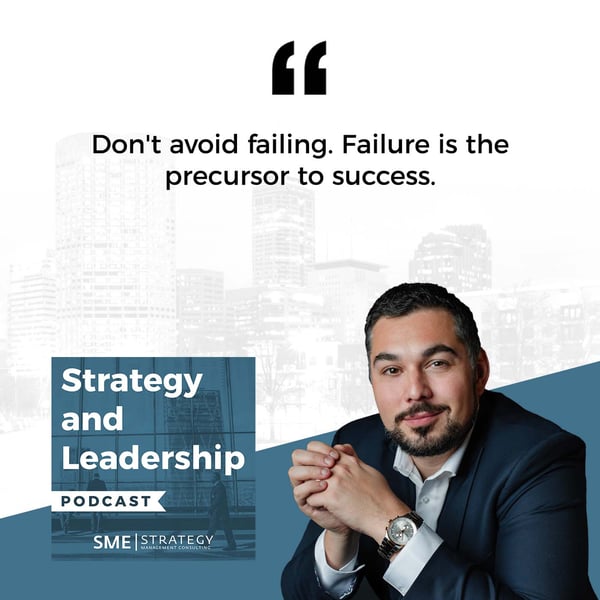
Lisa, thank you again for being here. Folks, my name is Anthony Taylor. This has been the Strategy and Leadership Show. I encourage you and invite you to share this with somebody in their career trying to build up what they can accomplish because you can go from entry level all the way up to CEO and Lisa is the proof.
Important Links
- Celebrity Cruises
- Making Waves: A Woman's Rise to the Top Using Smarts, Heart, and Courage
- www.LinkedIn.com/in/lisa-lutoff-perlo/
About Lisa Lutoff-Perlo
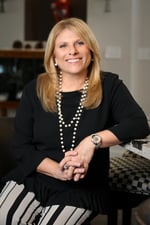 Lisa Lutoff-Perlo, Vice Chairman of External Affairs at Royal Caribbean Group, is a high impact leader in the travel and hospitality industry, whose vision and strategy not only propelled Celebrity Cruises to achieve transformational financial results as a brand within the Royal Caribbean Cruises Ltd. (RCL) portfolio but also dramatically increased the number of women in leadership roles throughout the Celebrity brand. Her passion for building extraordinary ships, creating unique experiences, and opening up the world through travel has brought recognition and countless awards to her and Celebrity Cruises. Lisa and Celebrity have achieved global impact, earning her a reputation as a trailblazer bringing transformation, diversity and inclusion into the travel and hospitality industry and onto the bridges of ships
Lisa Lutoff-Perlo, Vice Chairman of External Affairs at Royal Caribbean Group, is a high impact leader in the travel and hospitality industry, whose vision and strategy not only propelled Celebrity Cruises to achieve transformational financial results as a brand within the Royal Caribbean Cruises Ltd. (RCL) portfolio but also dramatically increased the number of women in leadership roles throughout the Celebrity brand. Her passion for building extraordinary ships, creating unique experiences, and opening up the world through travel has brought recognition and countless awards to her and Celebrity Cruises. Lisa and Celebrity have achieved global impact, earning her a reputation as a trailblazer bringing transformation, diversity and inclusion into the travel and hospitality industry and onto the bridges of ships


